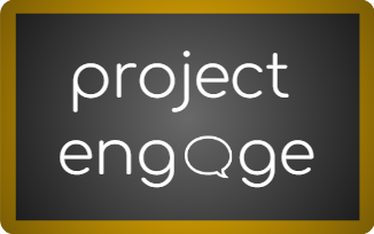Project Engage is designed to equip college students with skills to overcome fear of negative evaluation in active learning classrooms.
Frequently Asked Questions
Who is this intervention designed for?
Project Engage is designed for undergraduate students who are enrolled in active learning courses. Its primary objective is to provide students with valuable skills that will help them overcome their fear of negative evaluation in social-evaluative situations that often arise within active learning environments.
How does this intervention help?
Project Engage starts by explaining the evolutionary roots of anxiety and teaches how to identify situations where the body triggers false alarms of anxiety. It then teaches a few strategies to deal with anxiety in the context of active learning classes.
What have we learned about this intervention so far?
We have evaluated Project Engage in a randomized pilot study with 298 college students. We observed that participants who completed Project Engage reported an immediate increase in confidence for speaking up in active learning class. We are currently evaluating Project Engage in a much larger sample to test if the gain in confidence lasts in the long term.
Where can I try out this intervention?
We are currently evaluating Project Engage in a randomized trial and are likely to make it available publicly in early 2024.
How do I cite this intervention?
Ghosh, A., Cohen, K. A., Jans, L., Busch, C. A., McDanal, R., Yang, Y., Cooper, K. M., Schleider, J. L. (2023). Project Engage.
Where can I access these intervention materials for research purposes?
Visit our Open Science Framework Page here.
Project Engage is designed for undergraduate students who are enrolled in active learning courses. Its primary objective is to provide students with valuable skills that will help them overcome their fear of negative evaluation in social-evaluative situations that often arise within active learning environments.
How does this intervention help?
Project Engage starts by explaining the evolutionary roots of anxiety and teaches how to identify situations where the body triggers false alarms of anxiety. It then teaches a few strategies to deal with anxiety in the context of active learning classes.
What have we learned about this intervention so far?
We have evaluated Project Engage in a randomized pilot study with 298 college students. We observed that participants who completed Project Engage reported an immediate increase in confidence for speaking up in active learning class. We are currently evaluating Project Engage in a much larger sample to test if the gain in confidence lasts in the long term.
Where can I try out this intervention?
We are currently evaluating Project Engage in a randomized trial and are likely to make it available publicly in early 2024.
How do I cite this intervention?
Ghosh, A., Cohen, K. A., Jans, L., Busch, C. A., McDanal, R., Yang, Y., Cooper, K. M., Schleider, J. L. (2023). Project Engage.
Where can I access these intervention materials for research purposes?
Visit our Open Science Framework Page here.
Publications
*Ghosh, A., Cohen, K. A., Jans, L., Busch, C. A., McDanal, R., Yang, Y., Cooper, K. M., & Schleider, J. L. (under review). A digital single-session intervention (Project Engage) to address fear of negative evaluation among college students: A pilot randomized controlled trial. Preprint: https://psyarxiv.com/km7wt/.
*Randomized-controlled trials
*Randomized-controlled trials
